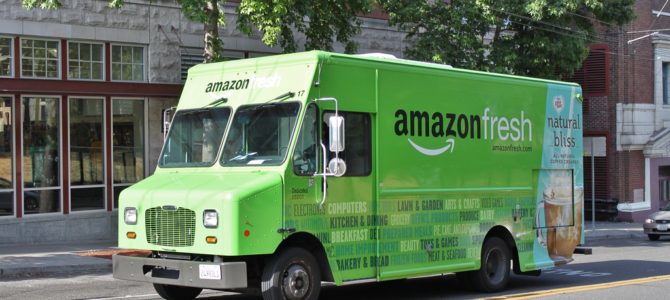Major corporations pay media outlets good money to advertise in their newsletters, which offer great access to niche groups of relevant insiders and power brokers. It’s exactly the demographic for whom these companies need to massage their message. It’s a win-win — easy cash for media outlets devising ways to cope in the new economy and targeted advertising for corporations who need goodwill in Washington.
Axios, for instance, relies on “Axios AM” sponsorship from Amazon, Mastercard, Google, Facebook, Bank of America, and more. Author Mike Allen notes the sponsorship in small print at the top of the email, then smoothly embeds ads for a company like Bank of America between those news items. While the ads are designed to resemble the news items, the process is fairly transparent and often provides useful insight into what major corporations are trying to tell Washington.
While it’s always worth remembering how some of these outlets’ bread is buttered — from Politico to The Hill to Axios — none of this is news. Last week, however, Politico’s popular “Playbook” newsletter produced a particularly telling example of Beltway subterfuge.
In a newsletter sponsored by Amazon, increasingly desperate for goodwill from lawmakers, Politico allowed the company to advertise a ranking from the Progressive Policy Institute, which named Amazon to the top of its “Investment Heroes” list, citing infrastructure investments and $15-an-hour starting wage.
Lol pic.twitter.com/XyWAkYi27H
— Emily Jashinsky (@emilyjashinsky) June 20, 2021
In 2019, Fast Company reported “Facebook, Google, and Amazon all donated last year to the Progressive Policy Institute (PPI), a pro-business think tank that regularly sponsors briefings for Democratic elected officials.” In a June write-up on the Investment Heroes list, Bloomberg pushed PPI’s chief economic strategist to concede the group receives “general funding from some of the companies on the heroes list.”
“The methodology only uses publicly available data and a consistent procedure that can be replicated,” he claimed.
That’s probably true. There are reasonable defenses of Amazon’s economic impact in the aggregate, and there’s no ethical problem with pro-business ideologues on the left mounting them. (Why is Amazon advertising its support for a $15 minimum wage in Beltway publications? Because, as the Texas Public Policy Foundation notes, Amazon could absorb the blow much more easily than its competitors, so supporting the policy is a feel-good move that generates easy public relations at little to no cost.)
Like the symbiosis between Amazon and Politico, the relationship between Amazon and PPI is at least somewhat based on shared interests and ideology. I’m sure the economists at PPI genuinely see Amazon as a net positive engine of economic development. Indeed, the archive of Amazon-related posts on PPI’s websites is full of research defending the company.
But consider the cycle here: Amazon funds a think tank that ranks it as a top investor, then uses that ranking to sponsor a newsletter touting the award. All of this is also happening with little substantive disclosure. Politico allowed Amazon to push that ad in its journalistic newsletter without caring to say whether the company funded the think tank that created the award it was advertising.
It’s illustrative of the way powerful interests purchase and exert outsize influence in Washington, the way media allows it to happen, and the way Big Business ideology is deeply entrenched in the political establishment.








